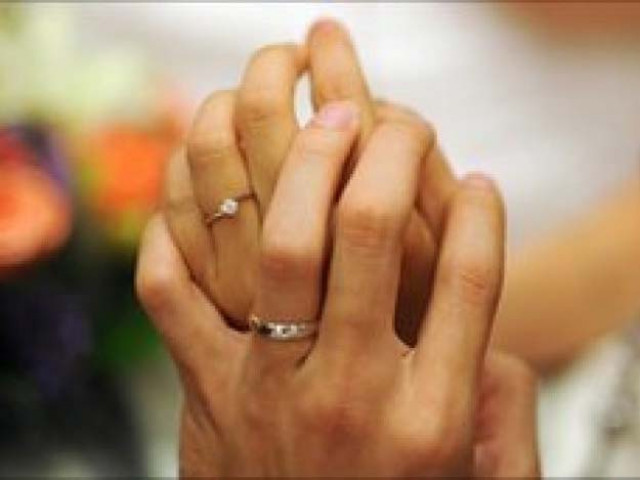Lawmakers defend child marriages legislation
Work in progress on legislation about domestic violence and acid attacks.

The opposition had staged a walkout during the passage. MPA Dr Waseem Akhtar of the Jamaat-i-Islami had later hinted that the amendments might not comply with Islamic principles. STOCK IMAGE
On March 6, three amendments to laws were passed in the Punjab Assembly following suspension of House rules. These included raising penalties on child marriages and second marriages and penalising nikah registrars who fail to properly fill the nikhanama (marriage deed).
The opposition had staged a walkout during the passage. MPA Dr Waseem Akhtar of the Jamaat-i-Islami had later hinted that the amendments might not comply with Islamic principles.
Several lawmakers said they were working on legislation to raise the minimum age for girls to be married and the introduction of the Domestic Violence Bill at the next session.
Standing Committee on Gender Mainstreaming Chairperson Raheela Khadim Husain said that societal considerations played a major role in limiting stricter legislations. “We are not entirely satisfied…the penalties are not harsh as the crime,” she said.
“Our dilemma is the minute you start talking about women’s rights, religion becomes a part of the debate.”
She said that some girls reached puberty at a very young age owing to various factors. “Girls as young as 12 years are being wed, especially in the southern parts of the province. Puberty is being cited as a defence,” she said.
Hussain said that she had called for a mandatory provision of medical certificates certifying the age of the bride and the groom at the time of nikah. “We want to gradually move towards better legislation. We aim to achieve this within our tenure,” she said.
The Punjab Marriage Restraint (Amendment) Act 2015, previously known as the Child Marriage Restraint Act 1929, has now increased the penalties and imprisonment for those found guilty of child marriage, including the person who contracts such a marriage, the person who solemnises it and the guardian of the child. From one month imprisonment and a fine of Rs1,000, the penalties have been raised to six months imprisonment and a fine of Rs50,000.
Activist Iftikhar Mubarik said the amendments were welcome, but not enough. “The bill failed to raise the minimum age for girls and make the offence of child marriage cognizable. Even the raise in fines and imprisonment are not enough,” he said.
Mubarik said the government needed to take the issue seriously, especially since the introduction of Article 25-A that made education a basic right of children up to the age of 16. The bill does not alter the definition of a child which still reads, under 18 years for male, and under 16 years for a female.
Human rights activist and lawyer Ali Imran said the amendments were symbolic. “With their passage just two days ahead of the International Women’s Day, the focus was largely on securing political mileage,” he said.
Law and Parliamentary Committee of the Assembly Chairperson Azma Zahid Bukhari said that the urgency to address the issue prompted suspension of House rules. “The government had already been working on an awareness campaign to address child marriages and better legislation for women’s rights. We wanted to legislate for women before the Women’s Day,” she said. Dismissing allegations of un-Islamic legislations from the opposition, Bukhari said, “The government is working on bringing legislation about acid attacks in the domestic violence bill. We are not only dealing with legislative challenges but also battling certain mindsets.”
Published in The Express Tribune, March 12th, 2015.


















COMMENTS
Comments are moderated and generally will be posted if they are on-topic and not abusive.
For more information, please see our Comments FAQ